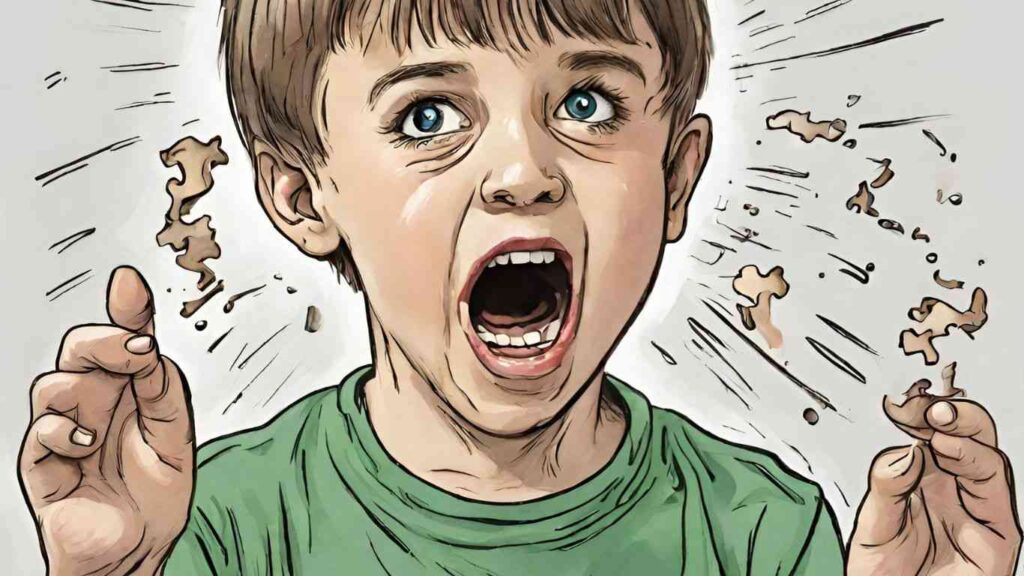Repetitive behaviors are common traits of Autism Spectrum Disorder (ASD). These behaviors are characterized by a repetitive and restricted pattern of behavior, interests, or activities.
Repetitive behaviors can be divided into two categories: motor stereotypies and fixed interests. Motor stereotypies are repetitive movements such as hand flapping, spinning, or rocking. Fixed interests are intense interests in a specific topic or object.
Repetitive behaviors can be a way for individuals with ASD to self-regulate or self-soothe. However, these behaviors can become problematic when they interfere with daily activities or cause harm. Repetitive behaviors can also be a way for individuals with ASD to communicate. For example, hand flapping may indicate excitement or anxiety.
Door Opening and Closing
Opening and closing doors repeatedly is a type of repetitive behavior that can be seen in individuals with ASD. This behavior falls under the category of motor stereotypies. It can be a way for individuals with ASD to self-regulate or self-soothe.
However, if this behavior interferes with daily activities or causes harm, it may need to be addressed. Caregivers and therapists can work with individuals with ASD to find alternative ways to self-regulate or self-soothe. For example, deep breathing exercises or sensory activities may be helpful.
Opening and closing doors repeatedly is a type of repetitive behavior that can be seen in individuals with ASD. It falls under the category of motor stereotypies and can be a way for individuals with ASD to self-regulate or self-soothe. However, if this behavior becomes problematic, caregivers and therapists can work with individuals with ASD to find alternative ways to self-regulate or self-soothe.
Identifying Signs of Autism
Autism spectrum disorder (ASD) is a neurodevelopmental condition that affects communication, social interaction, and behavior. One of the common features of ASD is repetitive behavior, which can manifest in various forms, including opening and closing doors.
Early Indicators
Early indicators of ASD can be observed in children as young as 12 to 18 months old. Some of the early signs of ASD include:
- Delayed speech and language development
- Lack of eye contact or social interaction
- Repetitive behavior, such as hand flapping, rocking, or spinning objects
- Fixation on certain objects or topics
- Unusual sensitivity to sound, touch, taste, or smell
It is important to note that not all children with ASD display the same set of symptoms, and the severity of the symptoms can vary widely. However, if parents or caregivers notice any of these early indicators, they should consider seeking an evaluation from a healthcare professional.
Assessment and Diagnosis
Diagnosing ASD involves a comprehensive evaluation by a healthcare professional, such as a pediatrician, psychologist, or psychiatrist. The evaluation typically includes:
- A developmental screening test, which assesses the child’s communication, social, and cognitive development
- A comprehensive diagnostic evaluation, which involves a detailed assessment of the child’s behavior, communication, and social interaction, as well as a medical and family history review
The diagnostic process can take several weeks or months and may involve multiple healthcare professionals. However, early diagnosis and intervention can improve the child’s long-term outcomes and quality of life.
Support and Intervention
Children with autism who display repetitive behaviors such as opening and closing doors may benefit from therapeutic approaches. Occupational therapy can help children develop fine motor skills and learn ways to self-regulate. Speech therapy can help children develop communication skills and learn how to express themselves effectively. Applied Behavior Analysis (ABA) therapy can help children learn new behaviors and reduce problematic behaviors.
Family and Community Support
In addition to therapeutic approaches, family and community support can benefit children with autism. Parents and caregivers can work with therapists to develop individualized plans that address the child’s unique needs. They can also provide a structured and consistent environment that helps the child feel safe and secure.
Community support can come in the form of support groups and resources that provide information and guidance for families of children with autism. Schools can also provide support by offering special education programs and accommodations that help children with autism succeed academically.
Research and Perspectives
Research studies have been conducted to understand the link between repetitive behaviors and autism. According to a study by the Interactive Autism Network (IAN), repetitive behaviors are more common and severe in young children with autism than in those without the disorder 1. Another study found that repetitive behaviors might include repetitively rocking the body or opening and closing drawers over and over 2.
Furthermore, researchers have identified that repetitive behaviors can occur in toddlers who are developing typically or have a disorder other than autism. However, if a child has many types of these behaviors, he or she is more likely to have autism than another disorder 1.
Evolving Understanding of Autism
The understanding of autism and its symptoms has evolved. Researchers have identified that children with autism can be transfixed by the opening and closing of a door, whereas a typical child will stare at the scene of a kiss 3.
It is important to note that repetitive behaviors, including opening and closing doors, are not exclusive to autism and can occur in other disorders or typically developing children. However, the presence of repetitive behaviors, along with other symptoms, can be indicative of autism 1.
As the understanding of autism continues to evolve, ongoing research studies are being conducted to gain further insights into the disorder and its symptoms.







